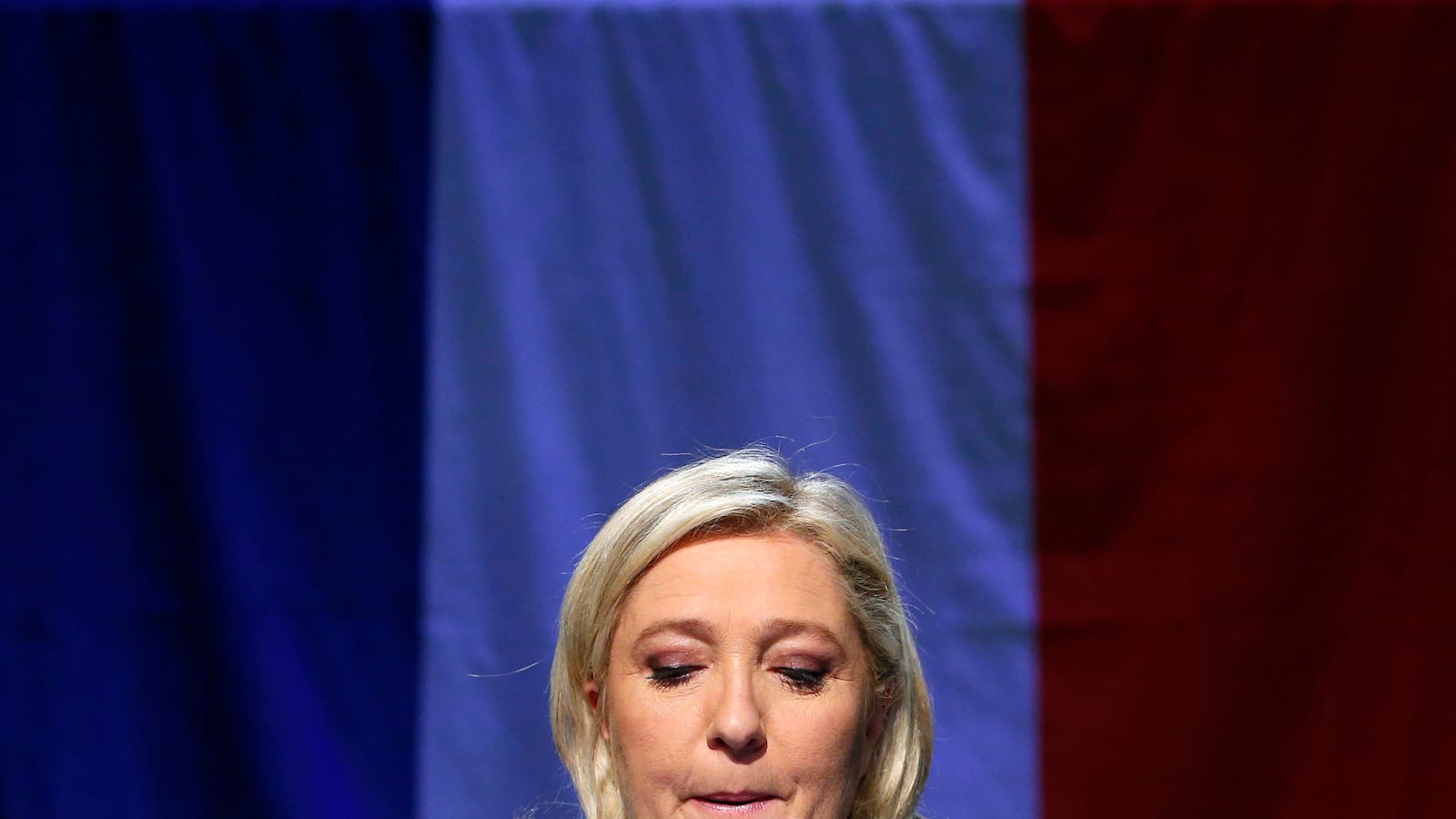PARIS — The names of the murdered children are not listed on the black memorial plaque mounted on the wall of a public school in the picturesque 17th Arrondissement of Paris. Indeed, the only information given about the 80 young inhabitants of this neighborhood is that they were Jewish students who were rounded up between 1942 and 1944 at the height of the Second World War and shipped off to Nazi death camps.
Similar plaques can be found in other Parisian neighborhoods, including in the city’s traditionally Jewish Marais district, where, facing a small public garden, a larger plaque lists the names of dozens more tiny victims, les tout-petits, who were not yet old enough to attend school when they were sent to their deaths. Suzanne Garnek was four years old when she was sent away. Jean Stolowicz hadn’t even turned one yet.
Many of these children were victims of what is known in French history as “operation Vel’ d’Hiv,” also known as “operation Spring Breeze”—a deceptively innocuous name given the horror that took place.
Vel’ d’Hiv, short for Vélodrome d’Hiver, was an indoor stadium and cycling track, not far from the Eiffel Tower, that has since been destroyed. On July 16 and 17, 1942, thousands of French police officers—let’s repeat that: French police officers—fanned out across the city to arrest some 28,000 Jews. More than 13,000 detainees were brought to the Vel’ d’Hiv, including children and pregnant women, who spent days in the stifling, horribly overcrowded space without toilets and often without water or food before being transferred to concentration camps.
In his book, Paris at War, author David Drake documents the conditions in the stadium, including stories of desperate mothers who were driven to do the unthinkable.
“Rosette Shalit, one of those who had been arrested, was puzzled to see bundles of clothes occasionally fall from seats higher up in the stadium,” Drake writes.
“She later learned that it was women trying to commit suicide by jumping from the upper sections, often with their children in their arms. Most of the 30 or so suicide attempts inside the stadium followed this pattern; ten were successful.”
The wall plaques acknowledge this particularly dark chapter in French history. The plaque in the 17th, for instance, calls the children “innocent victims of Nazi barbarism with the complicity of the Vichy government,” referring to the country’s Vichy regime, which held power from July 1940 to August 1944. Under this brutal French state, police organized raids, such as operation Vel’ d’Hiv, to capture the country’s Jewish residents and send them to death camps in France or farther east.
In a 1995 speech marking the anniversary of the roundup, then-President Jacques Chirac also addressed France’s role in the atrocity.
“It is hard to speak of these times also because these dark hours have forever soiled our history, and are an insult to our past and our traditions,” Chirac said. “Yes, it is true that the criminal insanity of the occupying forces was supported by some French people and the French State.”
“France, on that day, committed an irreparable act,” he added.
Fast-forward 22 years later, and it would appear that National Front presidential candidate Marine Le Pen, who is leading in a tight race, failed to get the memo. During an interview on Sunday with French media outlets, the far-right leader not only denied France’s role in the roundup, but appeared to present the country itself, not the murdered Jews, as the real victim.
“France wasn’t responsible for the Vel’ d’Hiv,” Le Pen said. “If there was responsibility, it is with those who were in power at the time, it is not with France. France has been mistreated, in people’s minds, for years.”
The comments recall statements her father, National Front founder Jean-Marie Le Pen, became infamous for making during his tenure as the party’s leader. Having once referred to the holocaust as “a mere detail of history,” the elder Le Pen and his far-right party became in the eyes of much of the modern French population emblematic of anti-Semitism and racism. Since taking over the party in 2011, Marine Le Pen, by contrast, has attempted to distance herself from the National Front’s intolerant image, and, indeed, from her father. However, Sunday’s statements suggest that despite the party’s gentler face, the extreme nationalism and anti-Semitism at its core lives on.
Le Pen’s comments have created a media and Internet firestorm— “Vel’ d’Hiv” was the top trending topic on Twitter in France on Monday, according to Reuters—and it has given fresh ammunition to her political opponents.
“Some have forgotten that Marine Le Pen is the daughter of Jean-Marie Le Pen,” said centrist candidate Emmanuel Macron, who has a strong chance of facing off against Le Pen in the second round of voting.
The embattled ex-Prime Miniser François Fillon, standard bearer for the mainstream conservative Les Républicains, said flatly, “Vel’ d’Hiv was a crime committed by the French state.”
Jumping into damage control mode, Le Pen issued a statement late on Sunday trying to justify her remarks by explaining that she considered the French state to have been exiled to London during the occupation and that her stance “in no way exonerates the effective and personal responsibility of the French people who took part in the horrible Vel’ d’Hiv roundup and in all the atrocities committed during this period.”
Whether or not Le Pen’s remarks will hinder her bid for the French presidency remains to be seen. In 2002, by a fluke, her father actually made it into the second round of the presidential election facing Chirac. Even those who’d cast protest votes for the elder Le Pen in the first round were revolted by the idea such a person could actually be the leader of the nation: in the second round, 82 percent of the electorate voted against him.
Marine Le Pen has not forgotten that—or, flush with high poll numbers, and with many voters undecided, maybe she has. By denying or even soft-pedaling France’s role in the infamous crimes of the war years she conjures unsettling specters from the National Front’s past.
She should take a cue from the memorial plaques in the French capital, which urge readers to remember the many lives cut short by extreme nationalism and state brutality nearly 75 years ago.
On the Marais memorial the following is written:
“Passerby, read their names. Your memory is their only tombstone. We must never forget them.”






